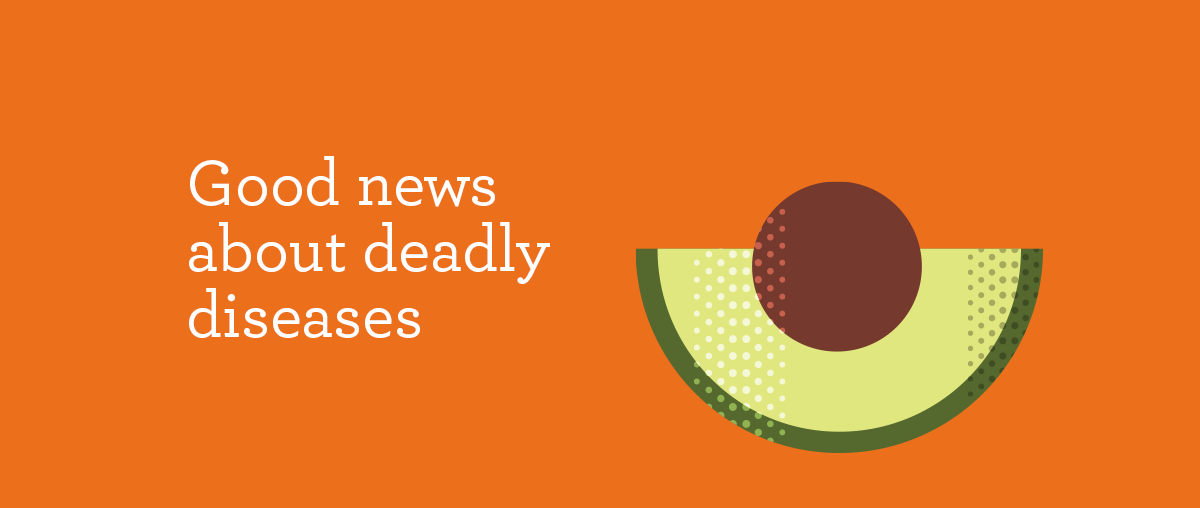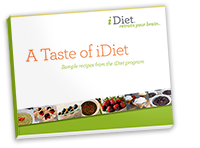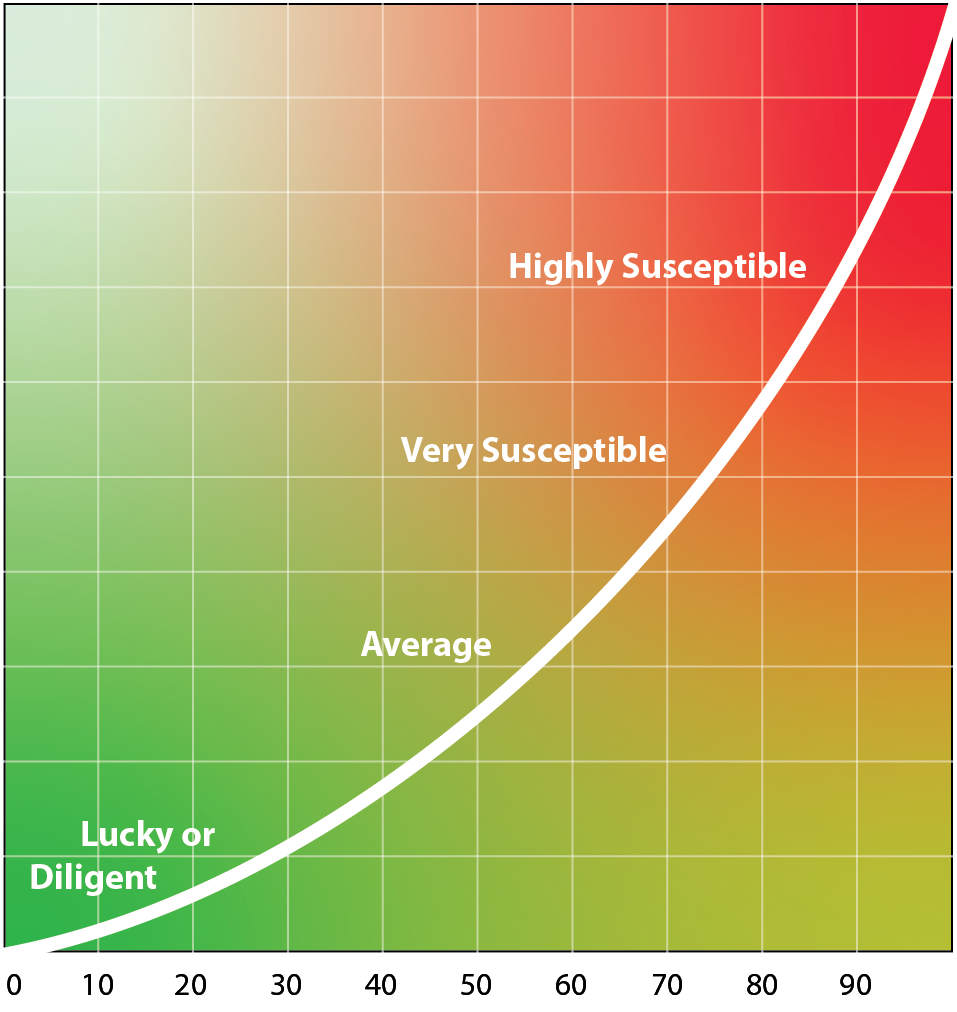Good news about deadly diseases

Curing cancer and heart disease is difficult. But preventing them is easy – and delicious.
Heart disease is responsible for one in four U.S. deaths, and cancer is responsible for nearly as many. Although we have made strides in cancer treatment, some rates of cancer (lymphoma, melanoma, kidney, liver, and thyroid) are actually rising. Combined, these terrible diseases account for half of all deaths, and even when they don’t kill you they are debilitating.
But we have good news: even though treating disease is difficult, prevention is easy, delicious, and under your control! Try incorporating some of the many tips below, or join an iDiet group.
Heart disease
The CDC has stated that about 80 percent of deaths from coronary artery disease [heart attack] and 50 percent of stroke deaths can be attributed to preventable factors like smoking, obesity, low physical activity, heavy drinking, and not keeping your blood pressure and cholesterol under control. Once you remove smoking, then food choices and obesity are the number two cause of cardiovascular deaths and cancer deaths combined, with all the woes of diabetes not far behind.
Cancer
For cancer, an estimated 42 percent of cases are associated with preventable lifestyle factors. If you already don’t smoke, then swapping in more healthy, delicious foods should be top of your list. Being a healthy weight versus obese cuts the risk of cancers studied by a factor of 2 to 7 times, which provides a great excuse to look after your weight if you have any history of cancer in your family. And regularly consuming fruits, vegetables, legumes, fish, low-fat dairy and whole grains — which are also important for weight control — provides the added bonus of all the antioxidant and anti-inflammatory properties of healthy eating that reduce cancer risk further. It’s true that a careful anti-cancer eating plan will have you avoid things like nitrite-laden hot dogs, but with today’s wide product variety there are very good substitutes that won’t make you feel like you are compromising taste for health.
A single delicious solution
When it comes to preventing heart disease, the same type of improved habits and diet that reduce cancer risk also improve cardiovascular health — a double win! It all starts in the kitchen.
Preventing heart disease and cancer starts in the kitchen and is largely under your control. Share on X
Despite the widespread perception that unhealthy food tastes better, we at iDiet know that the kinds of delicious foods that promote health are absolutely no sacrifice — and they come with myriad benefits, from improved energy and mood to reduced pain from lowering inflammation and weight. Sample the free recipes on our site, or join a program for access to many more.
Sidebar: The Leading Preventable Causes of Cancer:
Cigarette smoking: 19 percent of cancer cases and 28.8 percent of deaths
Obesity and overweight: 7.8 percent of cases and 6.5 percent of deaths
Alcohol intake: 5.6 percent of cases and 4 percent of deaths
Ultraviolet radiation: 4.7 percent of cases and 1.5 percent of deaths
Lack of exercise: 2.9 percent of cases and 2.2 percent of deaths
Low fruit and vegetable intake: 1.9 percent of cases and 2.7 percent of deaths
HPV infection: 1.8 percent of cases and 1.1 percent of deaths
Top Health Consequences of Obesity
People who have obesity are at increased risk for many serious diseases and health conditions, including the following:
- All-causes of death (mortality)
- High blood pressure (Hypertension)
- High LDL cholesterol, low HDL cholesterol, or high levels of triglycerides (Dyslipidemia)
- Type 2 diabetes
- Coronary heart disease
- Stroke
- Gallbladder disease
- Osteoarthritis (a breakdown of cartilage and bone within a joint)
- Sleep apnea and breathing problems
- Some cancers (endometrial, breast, colon, kidney, gallbladder, and liver)
What is my risk of developing cancer if I’m overweight or obese?
The risk is greater the more you weigh and the longer you are overweight. But this is a modifiable risk. You can help stack the odds against cancer and heart disease by avoiding more gains — and evidence is showing that even modest weight reduction can reduce your risk. For example, losing just 5% of your starting weight can significantly reverse Type 2 diabetes symptoms among those recently diagnosed.
Losing just 5% of your starting weight can significantly reverse Type 2 diabetes symptoms among those recently diagnosed. Share on X
Body fat is metabolically active. It produces hormones, as well as contributes to changes in other body signaling systems. The hormones it produces relate to stimulating growth and affecting insulin levels, which can influence both cell division (cancer) and blood sugar (diabetes). And it increases disease-promoting inflammation through excessive cytokine release.
How to follow a better diet to help prevent cancer and heart disease:
Make fruits and vegetables daily companions
Currently, Only 12 percent of Americans eat the minimum amount of fruit recommended (two cups a day). And only 9 percent get the two to three cups of vegetables a day that are recommended (also described as five servings of fruit and vegetables).
One study found that people who ate seven or more servings of fruits and vegetables were 42 percent less likely to die from any cause over the next eight years compared to those who ate less than one serving a day. Plant foods contain powerful micronutrients, such as flavonoids and carotenoids, which studies show are strong antioxidants. They counter damaging reactions (oxidation) from biological processes and reduce inflammation.
People who ate seven or more servings of fruits and vegetables were 42 percent less likely to die from any cause over the next eight years. Share on X
To add more to your diet, focus on adding “whole” foods, as close to their natural state as possible. For example, eat an unpeeled apple instead of drinking apple juice. Consume a range of fresh, colorful produce. Berries, cruciferous vegetables (such as broccoli, brussels sprouts, and cabbage), tomatoes, and dark-green leafy vegetables are especially potent cancer fighters, with deep colors signifying beneficial nutrients. These foods also help you keep a healthy weight, because they are both filling and relatively low in calories.
Add fiber to your diet
Every 10g of added daily fiber intake reduces the risk of colon cancer by 10 percent. Good sources include whole grains, fruits, beans, and vegetables, with the strongest medical evidence for whole grains and greens. Aim for at least 35g daily. The average American eats only 15g daily. (We evolved to eat over 100 g daily — so you can’t overdose on fiber!)
Dietary fiber helps protect against bowel cancer in a number of ways. Fiber helps to insulate and move contaminants and waste out of the intestines more rapidly. This reduces the amount of time harmful chemicals and waste products are in contact with the bowel. It has the added benefit of sweeping excess cholesterol out as well. Scientists are also finding that fiber helps your gut bacteria produce chemicals that help keep the bowel healthy — and may even improve mood and immunity.
Every 10g of added daily fiber intake reduces the risk of colon cancer by 10 percent. Share on X
Eat more wild-caught fish
Fish that are low in saturated fat and high in omega-3 fatty acids, such as ocean-caught salmon, Atlantic mackerel, Arctic char, and sardines, reduce inflammation, which is linked to cancer. Eating more fish will also crowd out some red meat from the diet — red meat as a protein source is linked to higher incidence of cancer than fish, poultry and eggs. Try to avoid farmed fish, which can carry more pesticides and chemicals in their flesh.
Reduce and be choosy about your red and processed meats
Red meat (beef, pork, and lamb) is linked to cancers of the digestive system and many organs. Research indicates it’s the heme iron in red meat (the substance that makes it red) that’s the culprit.
Nitrates and nitrites are often used to preserve processed meats such as sausage and bacon. In the body, nitrites can be converted into cancer-causing chemicals called N-nitroso compounds (NOCs). The presence of these chemicals may explain why many studies have found that processed meat increases the risk of cancer more than red meat. Read labels carefully and choose meat products free of nitrates.
Grilling dangers
Cooking meat at high temperatures such as grilling or barbecuing produces that nice char, but it also produced cancer-causing chemicals called heterocyclic amines (HCAs) and polycyclic amines (PCAs). Try grilling in foil pouches or using grill-safe cooking vessels like a grill pan or a cast-iron skillet.
Try grilling in foil pouches or using grill-safe cooking vessels like a grill pan or a cast-iron skillet to limit PCA danger. Share on X
Avoid trans fats
Trans fatty acids, used in baked goods and deep-fried foods, raise the risk of prostate and invasive breast cancers. Don’t buy anything containing partially hydrogenated oil, which is another term for trans fats. Luckily, foods containing trans fats generally cause weight gain, so this tip is another double-win.
Choose better fats
Many of your body’s essential tissues and membranes are built from lipids (fats), so it makes sense to use high-quality building materials 🙂 When you do eat fats, choose unsaturated fats from foods like fish, olive oil, nuts, and avocados. Omega-3 fatty acids found in foods such as salmon, tuna, and flaxseeds can fight inflammation and support brain and heart health. Store oils in a cool dark place in airtight containers, as they quickly become rancid when exposed to heat, light, and air.
Limit alcohol consumption
Alcohol is a risk factor for oral cancers; cancers of the esophagus, liver, colon, and breast; and possibly pancreatic cancer. Women should have no more than one drink daily; men, no more than two. Or zero, if you are actively losing weight 😉
Bonus points:
Get enough vitamin D
Higher blood levels of vitamin D are associated with lower rates of colon, breast, ovarian, renal, pancreatic, and prostate cancers. At your next physical, consider having your blood level tested, and discuss supplementation options with your doctor if it’s low. 15 minutes of sun exposure each day can also help maintain healthy levels.
Flavor your food with turmeric and other spices
Turmeric has anti-inflammatory properties. Garlic, ginger, and curry powder add flavor, and they add a cancer-fighting punch of valuable nutrients. Other good choices include basil, rosemary, and coriander.
Be physically active for at least 30 minutes a day
Physical activity decreases the risk of colon, endometrial, and postmenopausal breast cancer. Three 10-minute sessions throughout the day work just as well, but the key is to find an activity you enjoy and make it a part of your daily life. All our iDiet plans factor 30 minutes of moderate exercise into your calorie targets.
Try green tea
Green tea contains catechins, antioxidants in a class of compounds called polyphenols, which may protect cells from DNA damage, strengthen the immune system, and activate enzymes that curb tumors.
Avoid BPA and BPS
Research suggests there are links between cancer and BPA and BPS, both of which are found in plastic bottles and the inside coating of cans. Look for cans labeled BPA-free, and plastic containers with the recycling numbers 1, 2, or 4. Also avoid microwaving in plastic containers. Use glass or ceramic in the microwave instead.
Healthy and convenient
These healthy eating patterns happen to be exactly what iDiet prescribes, with the added benefits of our hunger and craving control, ease of planning and preparation, and overall convenience. Our multiple-choice EasyPlan menus eliminate the need to learn nutrition. They specify all the foods you need, in the right amounts and combinations — not only for hunger control and weight reduction, but also nutrition and overall health. We know that if it’s not easy, if it doesn’t taste good and keep you feeling full and satisfied, then it won’t be something worth sticking with. And our goal is keeping America healthy, so we only provide strategies that can be happily sustained for the long-term — no short-term quick fixes here.
Start feeling better — and looking better — today. Join us for an iDiet program.
And join us on Facebook, Twitter, Instagram or Youtube and let us know how you like to live healthier.
Wishing you a long and healthy life,
Love, the iDiet team.
Register Today
Choose the program that’s right for you.
Article Resources and references
Cancer and diet: What’s the connection? How your dietary habits can promote cancer or protect against it. (Harvard Health Publications)
Mediterranean diet may prevent breast cancer – How eating a diet rich in olive-oil can reduce the risk of cancer. (Harvard Health Publications)
Cancer Trends Progress Report: Prevention – Learn about the relationship between human behaviors such as diet and cancer, with links to fact sheets on Fruit and Vegetable Consumption, Red Meat Consumption, and Fat Consumption. (National Cancer Institute)
Cancer Prevention: Ask the Expert: Nutrition – Brief answers to some common questions about the relationship between diet and cancer. (Michigan State University)
Cancer Prevention Recommendations – Tips to help prevent some of the most common cancers. (World Cancer Research Fund International)
Foods that Fight Cancer – Information on specific foods and their role in protecting your health. (American Institute for Cancer Research)
Authors: Melinda Smith, M.A., and Lawrence Robinson. Last updated: March 2018.
https://www.nbcnews.com/health/cancer/fresh-look-cancer-shows-smoking-obesity-top-causes-n822836
https://www.cdc.gov/heartdisease/facts.htm
https://www.cdc.gov/obesity/adult/causes.html
https://www.cdc.gov/vitalsigns/heartdisease-stroke/index.html
https://well.blogs.nytimes.com/2016/08/24/obesity-linked-to-at-least-13-types-of-cancer/

 Yes! I want to receive a 38-page cookbook, and be informed of upcoming classes. No obligation, instant download.
Yes! I want to receive a 38-page cookbook, and be informed of upcoming classes. No obligation, instant download. 